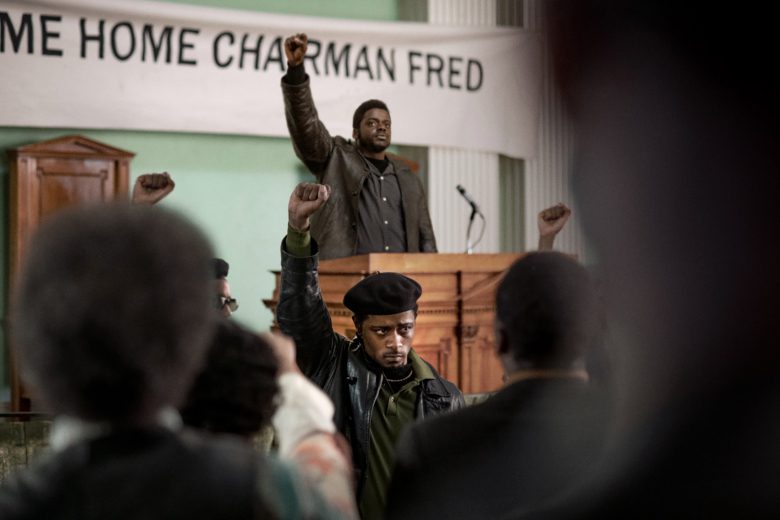Judas and the Black Messiah
Warner Bros
Directed by: Shaka King
Written by: Shaka King, Will Berson
Starring: Daniel Kaluuya, LaKeith Stanfield, Dominique Fishback, Jesse Plemons, Ashton Sanders, Darrell Britt-Gibson, Lil Rel Howery, Algee Smith, Martin Sheen
History wrote the ending of Judas and the Black Messiah nearly half a century ago. Despite this knowledge, my final reaction to the film remained unchanged. As the screen darkened and the credits began to roll, I gazed down at my hands. They were trembling. There were a number of ways I considered beginning this review, but I hope that simply describing that reaction is enough.
The film tells the story of Fred Hampton (Daniel Kaluuya), a leader of the Chicago Black Panthers in 1969, and of one Bill O’Neal (LaKeith Stanfield). O’Neal was a car thief operating in Chicago who was one day captured by police. As part of a plea deal, he agreed to infiltrate the Black Panthers to spy on Hampton on behalf of the FBI. Of course, the more time O’Neal spends with the Panthers and Hampton, the more he finds himself questioning the morality of his actions. Hampton and the Panthers are struggling to battle the system of white supremacy, a system that’s not only empowered by hate groups like the Ku Klux Klan but by organizations like J. Edgar Hoover’s (Martin Sheen) FBI.

The most extraordinary thing about Judas and the Black Messiah is how, for such an epic film, it manages to also feel so powerfully intimate. The struggles of the Black Panthers in Chicago are given their due depiction in cinematic detail, and those depictions are riveting, but it wasn’t for moments like those that the film stayed with me, or why my hands tremble even now as I type this review.
It’s for scenes like the one where Hampton’s partner, Deborah Johnson (Dominique Fishback) informs him that he’s going to be a father. Kaluuya’s Hampton is at once excited at the prospect, but also terribly afraid. He says little, but then, he doesn’t need to. It’s enough to see a man as eloquent and loquacious as Hampton to even temporarily be at a loss for words. Or for when O’Neal visits the mother (Alysia Joy Powell) of a Black Panther killed in a shootout with police. She recounts a memory of her son as a child, and wonders if he will be reduced to the act of violence that ended his life.
When my hands trembled at the end of Judas and the Black Messiah, it wasn’t simply from anger or sadness. It was from a tidal wave of those emotions and more. I felt anger at the injustices of white supremacy, sadness for the activists killed in the name of combating it, but also in the joy of life shown in the film. It’s joy that’s seen in Hampton’s programs for neighborhood children, and the bittersweet camaraderie between O’Neal and his fellow Panthers. And it was from profound gratitude that I was able to see a film like this at all. I had been wondering when I would finally see a great film again, and Judas and the Black Messiah proved to be just that.
